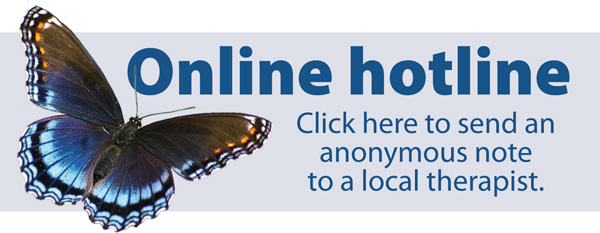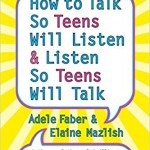My husband and I have been married almost 16 years, and I definitely get more excitable than my husband. I tend to yell at the kids, (like Brush your teeth now! Do your homework now!) My husband will also raise his voice to the kids, mostly always about being on task. We are a loud family, yelling at each other from upstairs or downstairs. But we are mostly a loving family, usually talking about our kids’ school, activities, etc. We laugh and joke a lot. We are a family of faith and very active in our church, which also is part of our children’s parochial school. Another thing worth mentioning is that my husband is an extremely hands-on parent, involved in every aspect of children’s schooling and an extremely supportive husband in every aspect of my life, career, etc. As I said, my husband is mostly a mild man, but will raise his voice with the kiddos, but nothing extreme, a quick “get it together” kind of way.
Well tonight both boys were in the bathroom. I heard a ruckus, went in screaming at my oldest because I saw my youngest screaming in the shower. Then my oldest started crying, and my 9yr old said the shower pole that holds shampoo fell on his foot and that’s why he was hurting so bad. I immediately hugged my oldest & said I was so sorry for blaming him and soothed him. I was still pretty upset and yelled for my husband to immediately take the pole out of the shower. My husband then started yelling and said I needed to calm down and that I shouldn’t be shouting at the boys. A lot was going on and I kept saying he needed to remove the pole that hurt our son, but he didn’t know what had happened. Then he hit my hand away that was in the air. I wasn’t holding it really close to him. I kinda talk with my hands. I quickly hit his hand back away. It wasn’t a hard hit on the hand. I was just shocked.
He removed the pole and took our oldest downstairs to shower. My youngest finished his shower, and then I put ice on his foot. I then went and found my husband and we went into a secluded room where we discussed what happened. He explained that he was very upset that he heard me screaming at the boys and I was out of control. I then said I realized within a minute I was all wrong and began apologizing & comforting them. But I was still angry with myself and that pole when I yelled for him to come in and remove it. He then admitted he started yelling at me without understanding everything and was just very upset at the tone I had taken with the boys and just hit my hand out his face. I then said I never put my hand in your face, but he said he felt it was near his face.
I told him that I can’t believe our sons witnessed that interaction, even as quick as it was. While I’m more fiery than my husband, he usually will tell me that I should calm down and he needs a little space before we talk again if it’s getting heated. I can tell he gets a little heated and doesn’t want to really yell or say something mean. Again, we are not having frequent arguments. When we were talking calmly, I said I never ever expected that from you and it was especially shocking in front of our boys. We have never laid a hand on each other out of anger and this wasn’t acceptable. I told him I was so confused and surprised because this was completely out of character for him. He is the most kind and patient person with me. He said he deeply regretted it and would do whatever I wanted him to do. I told him we should go talk with the boys and make sure they know what happened was wrong. I calmly explained that I shouldn’t have run in like that, and I apologized for jumping to conclusions. I asked them what they thought went wrong and they both mentioned the yelling and the hand hitting. My husband then said, that while both mom and I need to work on not yelling, hitting is never an option. We both said sorry to them and hugged it out.
Where do I go from here? This hasn’t happened before. Should we get counseling even though we hardly ever argue? I’m a bit fiery but calm down pretty quickly when he calls me out. Should we speak to our pastor or a counselor? What do you think?
Response by Zachary Austin, M.MFT, LMFT
Where do we go from here? This is such a great question. It reminds me of one of my favorite metaphors to use to help families make sense of their relationships – a journey. I have found that my work with families often contains some component of the journey metaphor as it seems to be pretty natural for us to speak about our relationships as this unfolding story of our attempts to journey through life together in the same direction toward some mutually-fulfilling destination. But this ideal can often become burdensome for the simple fact that every family’s journey story has parts to it that aren’t easy to talk about.
Every family will face inevitable difficulties along the way – some predictable but also some that are surprising – that stall the trek toward what their family is aiming to achieve together. The ability for a family to regain their bearings and move forward on their journey together starts with the question you have asked. Do we keep going down the path we are on? Can we turn around and head back to some point we have been before? Should we take this fork in the road and hope that way is better? Where do we go from here?
I believe there to be wonderful things to gain when families accept that the story of their journey today does not have to be the story of their journey tomorrow. And, from reading your thoughtful inquiry, I believe you and your husband do as well, which gives me great hope in helping you find the answers you seek. While I am not an expert on your family’s journey story and thus cannot point you in a singular direction and say, “Right here. This is where your family should absolutely go,” I can help point out some of the places I have seen other families go that seem in line with the information you have given me. I hope these places will serve as points on a map for you and your husband to circle and consider in order to make a judicious decision about where your journey should take your family next.
Don’t Go “There” Again
The first place I would point out on the map for you to circle is one I am actually imploring you to not ever go to again. I was pleased to read that you and your husband agree that physical aggression “is never an option” to solve conflicts and that you communicated your misstep in this to your sons as well. You are correct in your assessment that even though the hitting seemed minuscule by comparison to what violence can look like, it is concerning enough to address because it should never be a characteristic of the interactions between your family.
 Physical violence, no matter the size, serves no constructive role in our intimate relationships and can quickly and catastrophically erode the foundation of safety and security that is so vital for our relationships to thrive. So, circle this place, mark it with a bold X and don’t go there again. To help with this, consider identifying a line to not cross in your conflicts and how to recognize when conflicts are nearing this line. Give each other permission to take a break when one or all of you feel the conflict is nearing the line and protect this as an important right for your family members. I think you will discover that you will be capable of solving conflicts much more successfully when doing so from a state of calm and not when emotions are heightened and intense.
Physical violence, no matter the size, serves no constructive role in our intimate relationships and can quickly and catastrophically erode the foundation of safety and security that is so vital for our relationships to thrive. So, circle this place, mark it with a bold X and don’t go there again. To help with this, consider identifying a line to not cross in your conflicts and how to recognize when conflicts are nearing this line. Give each other permission to take a break when one or all of you feel the conflict is nearing the line and protect this as an important right for your family members. I think you will discover that you will be capable of solving conflicts much more successfully when doing so from a state of calm and not when emotions are heightened and intense.
Go To Each Other
Can I tell you a little counseling secret? Often times the solution to a family’s problem is already known by its members even before the family presents to counseling. I could give you several stories of ground-breaking moments in counseling I have experienced that occurred simply because I helped a family ask each other the right questions on how to solve a problem and they arrived at what to do or what not to do on their own.
 Thus, it is often helpful for families who are stuck on their journey together to simply collaborate with each other on how issues could be resolved better next time. This is the next place I would like to circle on the map for you to consider exploring. If you are not already in the practice of doing this, I encourage you to consider having family meetings and to commit to doing them regularly for a good chunk of time. These meetings do not have to have a central focus necessarily, but since the issue of how to more appropriately handle conflict is an important need for your family right now, you may want to start by addressing that first. Here are some suggested discussion starters to keep the focus of the meeting on how to move in a positive direction on your journey even when conflicts occur: What are the things we have done as a family in the past to help keep conflicts regulated? What are the things we are doing right now as a family that help prevent conflicts from escalating too far? What are the unexplored ideas we have about things that could be done to make conflicts more productive in our family?
Thus, it is often helpful for families who are stuck on their journey together to simply collaborate with each other on how issues could be resolved better next time. This is the next place I would like to circle on the map for you to consider exploring. If you are not already in the practice of doing this, I encourage you to consider having family meetings and to commit to doing them regularly for a good chunk of time. These meetings do not have to have a central focus necessarily, but since the issue of how to more appropriately handle conflict is an important need for your family right now, you may want to start by addressing that first. Here are some suggested discussion starters to keep the focus of the meeting on how to move in a positive direction on your journey even when conflicts occur: What are the things we have done as a family in the past to help keep conflicts regulated? What are the things we are doing right now as a family that help prevent conflicts from escalating too far? What are the unexplored ideas we have about things that could be done to make conflicts more productive in our family?
Go To A Guide
I noticed in your question that in addition to asking, “Where do we go from here?” in general, you were also specifically asking if it was appropriate for your family to seek counsel to get your journey back on track. My answer to that question thus far has been for your family to listen to the counsel of your own insights, ideas, and intuitions. Though as some families do this, they often diagnose the solution as needing to acquire more information and insight through a guide who knows more about the particular problem they’re facing. So the final place I will encourage you to circle on the map is the wealth of competent and capable mental health professionals experienced in working with couples and families that are in our community and could serve as your guides on the journey. Before you start making phone calls and setting up appointments, however, it may be helpful for you to think through and talk about some things with your family to determine what type of guide will be the best fit for your family.
A lot of your concern was focused on how your sons are dealing with the physical aggression they witnessed. It is likely, because children are often surprisingly resilient, that your sons will bounce back just fine from having already talked about the incident with you and your husband, but if your sons begin to appear or verbalize feeling traumatized, excessively anxious or perhaps more depressed than usual as a result of what happened (sometimes indicated in children and adolescents by changes in typical behaviors, increased defiance, and greater degrees of moodiness and anger), then you may consider seeking a mental health professional who has experience working with children your sons’ ages. These professionals will know how to creatively and effectively deal with issues in ways that are age-appropriate for your sons and will help you and your husband take a role in their healing process as well.
The other concern you alluded to seemed to be the pattern of high emotional reactivity you and your husband find yourselves stuck in at times when it comes to your differing communication styles, especially around areas of child-raising and handling family conflicts. While you noted that the physical aggression was very much out of character for you and your husband and not the norm for your relationship, you may still be wondering if it is enough to warrant you to seek marital therapy. The short answer to this is: maybe. Many couples make the decision to have a marriage check-up at even the slightest inkling of an issue to ease their anxieties about the issue potentially worsening over time. Conversely, many couples feel confident in the strengths and resources that characterize their relationship to resolve the issue “in-house” and decide to only seek counseling if and when the issue surfaces again or they reach an impasse on how to solve the issue. Thus, it may be helpful for you to overtly consider these things with your husband.
 Would it help you feel better about your marriage to go ahead and talk to a counselor now? Can you comfortably and productively talk about what happened without feeling like someone else needs to be present to mediate your conversations? How will you know if and when outside help might be needed? If you do decide to seek help, then I recommend you seek a mental health professional experienced in working with couples. These professionals can first help you and your husband get on the same page about how to communicate and solve family problems with each other and then include your sons after some change has started to occur within your marital relationship.
Would it help you feel better about your marriage to go ahead and talk to a counselor now? Can you comfortably and productively talk about what happened without feeling like someone else needs to be present to mediate your conversations? How will you know if and when outside help might be needed? If you do decide to seek help, then I recommend you seek a mental health professional experienced in working with couples. These professionals can first help you and your husband get on the same page about how to communicate and solve family problems with each other and then include your sons after some change has started to occur within your marital relationship.
I feel I cannot express enough my appreciation for your bravery in being vulnerable with us and for your thorough and thoughtful question – “Where do we go from here?” My hope is that after reading this you will feel less bewildered and more confident in knowing where your family’s journey should go from here. May the places on the map we discussed today be worth exploring and may your exploration of these places be worth telling about. I wish you well on your journey.
Therapists at Ozark Guidance would be happy to answer your questions and read what’s on your mind. Click the butterfly icon below to fill out an anonymous submission form with your question or concern. The form contains NO identifying information and is designed to give local women an online place to share concerns with a person qualified to offer feedback.
 Disclaimer: This RESPONSE does not provide medical advice It is intended for informational purposes only. It is not a substitute for professional medical advice, diagnosis or treatment. Never ignore professional medical advice in seeking treatment because of something you have read on nwaMotherlode or Ozark Guidance websites.
Disclaimer: This RESPONSE does not provide medical advice It is intended for informational purposes only. It is not a substitute for professional medical advice, diagnosis or treatment. Never ignore professional medical advice in seeking treatment because of something you have read on nwaMotherlode or Ozark Guidance websites.






